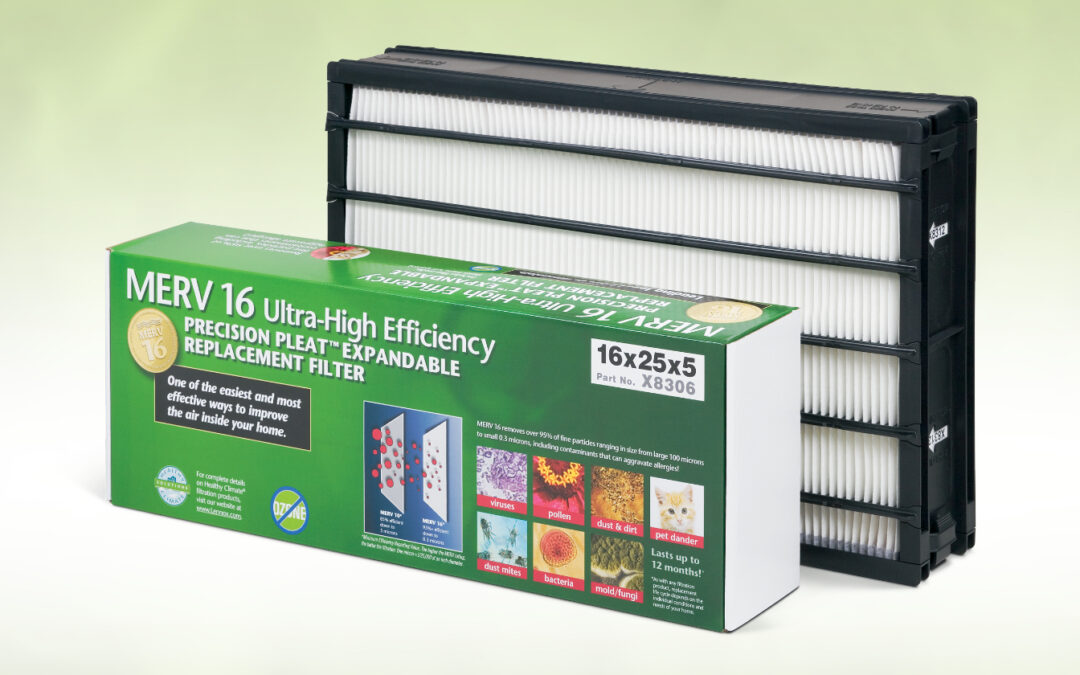How good is your filter?
Filters are rated for the ability to remove particulates from the air with what is called a “MERV” rating. MERV is an acronym for “Minimum Efficiency Reporting Value”. A higher MERV rating means fewer dust particles and other airborne contaminants can pass through the filter. These can include pet dander, insecticide dust, smog, dust, viruses, wood, tobacco smoke, spores, bacteria and pollen.
Some of the most common filters found in residential use only have a MERV rating of 1 to 4. These are typically inexpensive 1 inch disposable filters and do not do a good job of filtering the air.
MERV 5 to 8 rated filters offer a little better protection and are adequate for homeowners who just want basic equipment protection. Filters with a MERV rating of 9 to 12 are a good choice for homeowners who want better control of dust and pet dander.
The most efficient filters have MERV ratings of 13 to 16. These filters are used in hospitals and in residential applications for those who suffer from allergies or other respiratory problems.
If you don’t know the MERV rating of your filter, hold it up to a light and see if you can see through it. If you can, it will not offer you much protection. Typically, better filters are thicker box style filters and are more than a few inches thick.
If you have allergies, other respiratory problems, or are just trying to get some relief from the smoke that comes from our region’s summer wildfires, we recommend a filter with a rating of MERV 16. They will improve your indoor air quality, and keep your heating and cooling equipment clean and performing at peak efficiency, making them well worth the investment.
Remember, a high-efficiency filter can only filter air when the air is passing through it. That being the case, running your fan continuously will keep the indoor air quality the cleanest especially during the times of year that smoke and pollen are at their highest.
Whatever filter you use, be sure to inspect it and change it on a regular basis. Filters that are only 1 inch thick should be checked every few weeks and can usually last up to a month depending on usage. Thicker box media style filters can last up to a year in some circumstances, but should be checked every few months especially if you are running your fan continuously.
